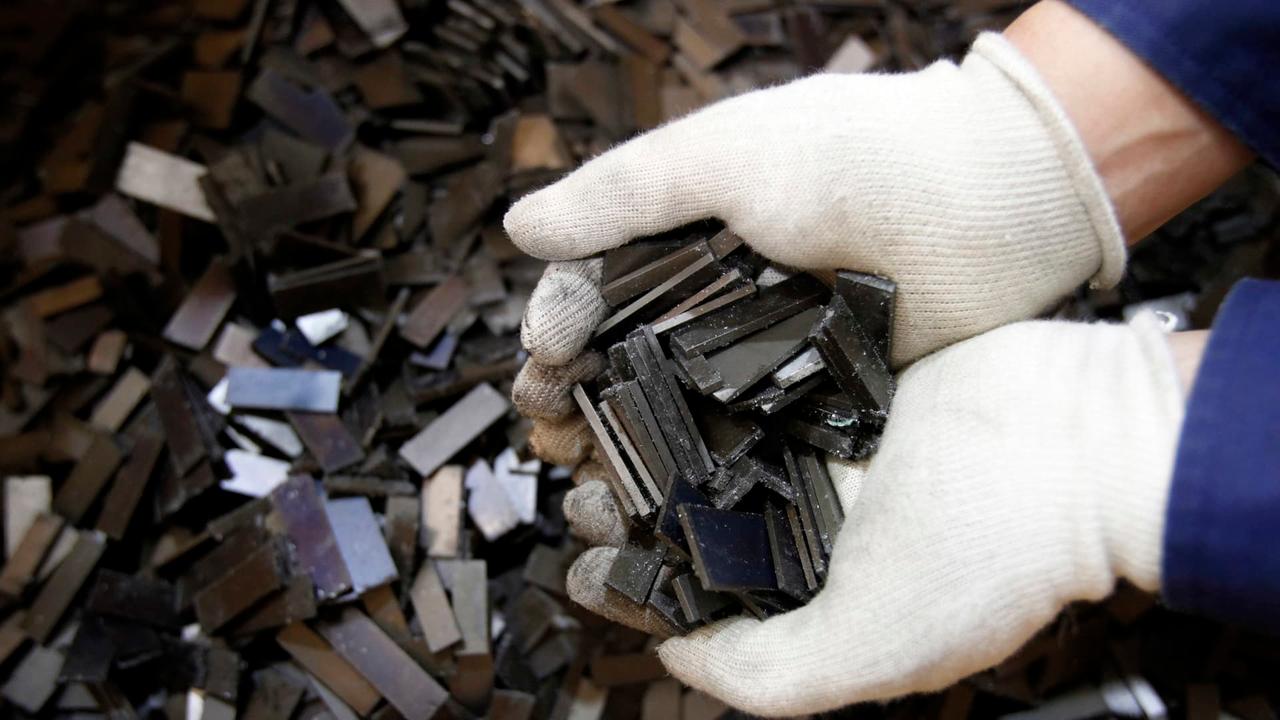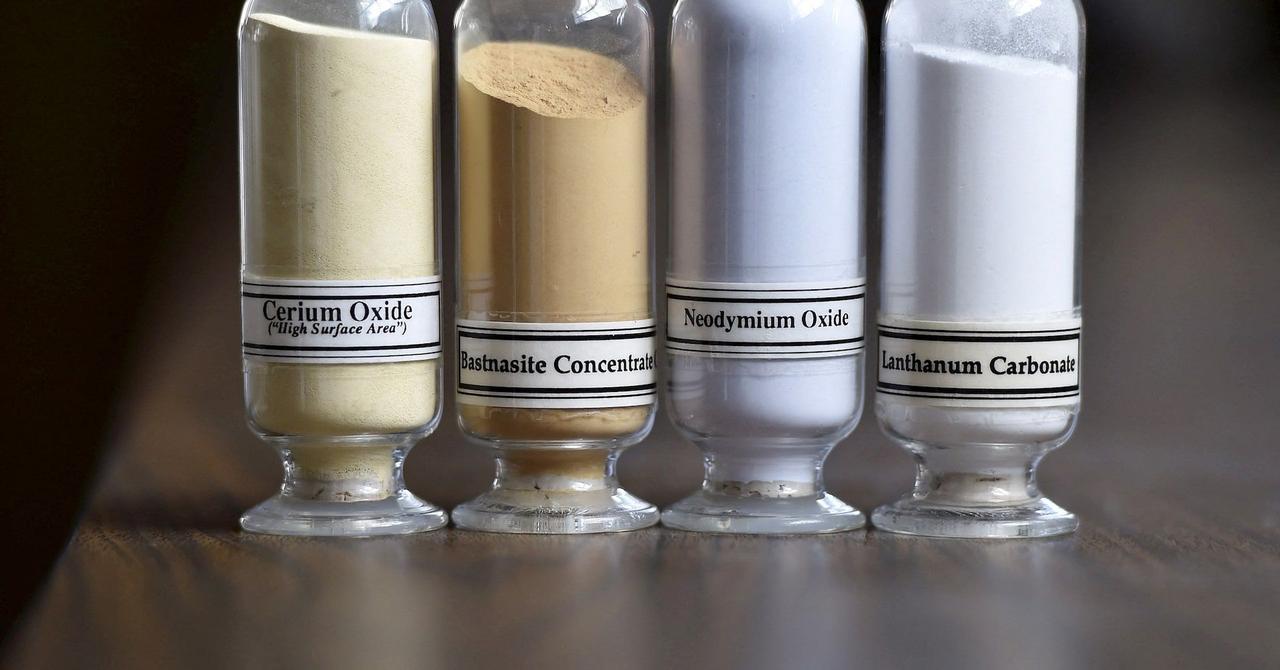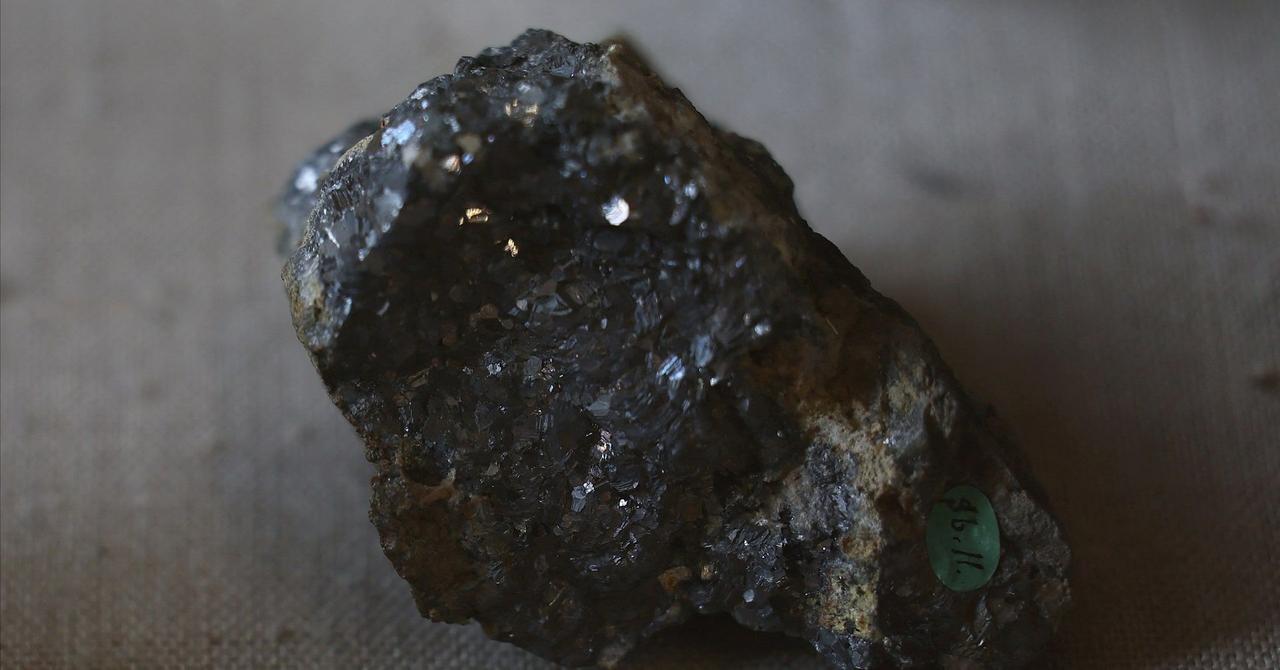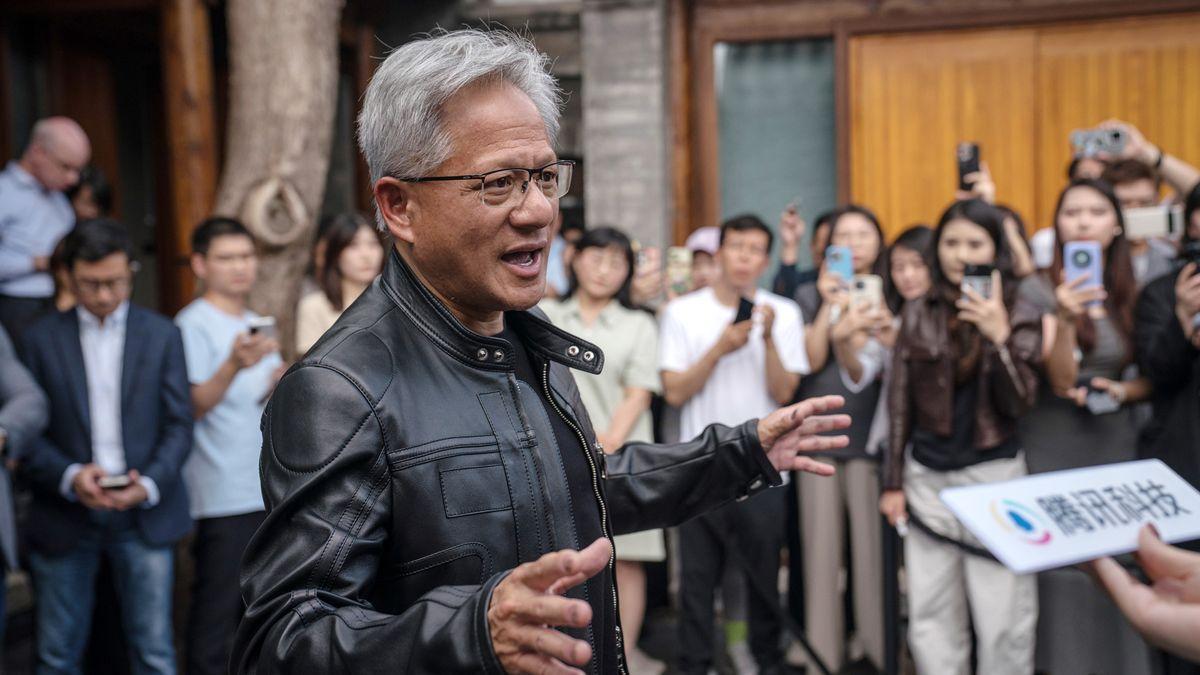China's Rare Earth Magnet Exports to US Surge 660% in June Amid Trade Deal
4 Sources
4 Sources
[1]
China's exports of rare earth magnets to the U.S. skyrocket in June
BEIJING, July 20 (Reuters) - China's exports of rare earth magnets to the United States in June soared by more than six times from May, a sharp recovery in the flow of critical minerals key to electric vehicles and wind turbines after a Sino-US trade deal. Outbound shipments to the United States from the world's largest producer of rare earth magnets surged to 353 metric tons in June, up 660% from May, data from the General Administration of Customs showed on Sunday. That came after pacts reached in June to resolve issues around shipments of rare earth minerals and magnets to the United States, with chipmaker Nvidia's (NVDA.O), opens new tab plan to resume sales of its H20 AI chips to China as part of the talks. China, which provides more than 90% of global supply of rare earth magnets, decided in early April to add several rare earth items to its export restriction list in retaliation for U.S. tariffs. The subsequent sharp falls in shipments in April and May, due to the lengthy times required to secure export licences had rattled global suppliers, forcing some automakers outside China to halt partial production due to shortage of rare earths. In total, China exported 3,188 tons of rare earth permanent magnets last month, up 157.5% from 1,238 tons in May, although the June volume was still 38.1% lower than the corresponding month in 2024. Shipments of magnets are likely to recover further in July as more exporters obtained licences in June, analysts said. During the first half of 2025, exports of rare earth magnets fell 18.9% on the year to 22,319 tons. Reporting by Amy Lv and Colleen Howe; Editing by Clarence Fernandez Our Standards: The Thomson Reuters Trust Principles., opens new tab
[2]
China's exports of rare earth magnets to the US surge in June
BEIJING, July 20 (Reuters) - China's exports of rare earth magnets to the United States in June soared to more than seven times their May level, marking a sharp recovery in the flow of critical minerals used in electric vehicles and wind turbines after a Sino-U.S. trade deal. Outbound shipments to the United States from the world's largest producer of rare earth magnets surged to 353 metric tons in June, up 660% from May, data from the General Administration of Customs showed on Sunday. That came after pacts reached in June to resolve issues around shipments of rare earth minerals and magnets to the United States. Chipmaker Nvidia (NVDA.O), opens new tab plans to resume sales of its H20 AI chips to China as part of the agreement. China, which provides more than 90% of the global supply of rare earth magnets, decided in early April to add several rare earth items to its export restriction list in retaliation for U.S. tariffs. The subsequent sharp fall in shipments in April and May, due to the lengthy time required to secure export licences, had upset the global supply chain, forcing some automakers outside China to halt partial production due to a rare earths shortage. In total, China exported 3,188 tons of rare earth permanent magnets globally last month, up 157.5% from 1,238 tons in May, although the June volume was still 38.1% lower than the corresponding month in 2024. Shipments of magnets are likely to recover further in July as more exporters obtained licences in June, analysts said. During the first half of 2025, exports of rare earth magnets fell 18.9% on the year to 22,319 tons. Reporting by Amy Lv and Colleen Howe; Editing by Clarence Fernandez and Edmund Klaman Our Standards: The Thomson Reuters Trust Principles., opens new tab
[3]
U.S. firms scramble to secure rare-earth magnets -- imports from China surge 660%
Rare earth magnets at a Hitachi laboratory in Japan.Kiyoshi Ota/Bloomberg via Getty Images China's exports of rare-earth magnets to the United States in June surged more than seven times from the prior month, as American firms clamor to get hold of the critical elements following a preliminary Sino-U.S. trade deal. In April, Beijing placed restrictions on several critical magnets, used in advanced tech such as electric vehicles, wind turbines and MRI machines, requiring firms to receive licenses for export. The move was seen as retaliation against U.S. President Donald Trump's steep tariffs on China. Beijing has a stranglehold on the production of rare-earth magnets, with an estimated 90% of the market, as well as a similar hold on the refining of rare-earth elements, which are used to make magnets. The U.S. received about 353 metric tons of rare-earth permanent magnets in June, up 660% from the previous month, data released by the General Administration of Customs showed, though the exports were about half that from June last year. The U.S. was the second-largest destination for China's rare-earth magnets, behind Germany, as it relies heavily on their imports for its large manufacturing sector, particularly in automotive, electronics, and renewable energy. In total, China exported 3,188 metric tons of rare earth permanent magnets globally last month, up nearly 160% from May, but 38% lower compared with the same period last year. The growth in exports came after Washington and Beijing agreed last month on a trade framework that included easing controls on Chinese rare-earth exports as well as a rollback of some American tech restrictions for shipments to China. AI behemoth Nvidia said last week it was planning to resume shipments of its H20 AI chips to China, after the exports were restricted in April. Last month, controls on American AI chip software companies' business in China had also been rolled back. Chinese rare-earth magnet producers started announcing the approval of export licenses last month. If exports continue to increase, it will be of great benefit to companies that have been suffering from shortages of magnets due to the lengthy time required to secure export licenses. For example, several European auto-parts suppliers were forced to halt production in recent months. The magnet shortages had also hit emerging industries such as humanoid robotics. In April, Elon Musk said production of Tesla's Optimus humanoid robots had been disrupted. China's controls on its rare-earths sector have prompted some global governments to reexamine their rare-earth supply chains and search for ways to support domestic mining of the minerals. However, experts say that setting up alternatives to China's rare-earth magnet supply chain could take years, as it requires an intricate process of rare-earth element refining and separation. "The separation process is quite complex, and China has a lot of advantages in this after putting in decades of research into the processes," Yue Wang, a senior consultant of rare earths at Wood Mackenzie, told CNBC last month. One way that the U.S. has been trying to compensate for lack of rare-earth magnets is through increased recycling. Apple and miner MP Materials announced a $500 million deal last week for the development of a recycling facility that will reinforce the iPhone maker's U.S. magnet supply chain. Peter Alexander from financial consultancy Z-ben Advisors said that Washington's latest concessions on tech restrictions were a reflection of just how much leverage China has in its trade relationship with the United States, speaking on CNBC's "China Connection" on Monday.
[4]
China's exports of rare earth magnets to the US skyrocket in June
(Corrects first paragraph to an increase of more than seven times, not six) BEIJING (Reuters) -China's exports of rare earth magnets to the United States in June soared by more than seven times from May, a sharp recovery in the flow of critical minerals key to electric vehicles and wind turbines after a Sino-U.S. trade deal. Outbound shipments to the United States from the world's largest producer of rare earth magnets surged to 353 metric tons in June, up 660% from May, data from the General Administration of Customs showed on Sunday. That came after pacts reached in June to resolve issues around shipments of rare earth minerals and magnets to the United States, with chipmaker Nvidia's plan to resume sales of its H20 AI chips to China as part of the talks. China, which provides more than 90% of global supply of rare earth magnets, decided in early April to add several rare earth items to its export restriction list in retaliation for U.S. tariffs. The subsequent sharp falls in shipments in April and May, due to the lengthy times required to secure export licences, had rattled global suppliers, forcing some automakers outside China to halt partial production due to shortage of rare earths. In total, China exported 3,188 tons of rare earth permanent magnets last month, up 157.5% from 1,238 tons in May, although the June volume was still 38.1% lower than the corresponding month in 2024. Shipments of magnets are likely to recover further in July as more exporters obtained licences in June, analysts said. During the first half of 2025, exports of rare earth magnets fell 18.9% on the year to 22,319 tons. (Reporting by Amy Lv and Colleen Howe; Editing by Clarence Fernandez)
Share
Share
Copy Link
China's exports of rare earth magnets to the US increased dramatically in June following a trade agreement, highlighting the critical role of these materials in various industries and the complex dynamics of US-China trade relations.
Surge in Rare Earth Magnet Exports
China's exports of rare earth magnets to the United States experienced a dramatic increase in June 2025, surging by 660% compared to May. The volume of shipments rose from an undisclosed amount in May to 353 metric tons in June, marking a significant recovery in the flow of these critical minerals
1
. This surge came in the wake of a Sino-U.S. trade deal aimed at resolving issues surrounding the shipment of rare earth minerals and magnets.
Source: CNBC
Trade Deal and Its Implications
The trade agreement reached in June 2025 not only addressed the export of rare earth materials but also included provisions for the technology sector. As part of the deal, chipmaker Nvidia announced plans to resume sales of its H20 AI chips to China
2
. This development highlights the interconnected nature of trade negotiations and their impact on various industries.Background of Export Restrictions
The surge in exports follows a period of tension between China and the United States. In early April 2025, China added several rare earth items to its export restriction list in retaliation for U.S. tariffs. This decision led to sharp declines in shipments during April and May, as exporters faced lengthy processes to secure the necessary licenses
3
.Global Supply Chain Disruptions
The restrictions on rare earth magnet exports had significant repercussions on the global supply chain. Some automakers outside China were forced to halt partial production due to shortages of these critical components. The magnets are essential for various industries, including electric vehicles, wind turbines, and advanced technologies like MRI machines
3
.China's Dominance in Rare Earth Production

Source: Reuters
China's position as the world's largest producer of rare earth magnets, providing more than 90% of the global supply, underscores its crucial role in the industry. This dominance extends to the refining of rare earth elements, which are used to manufacture the magnets
3
.Related Stories
Future Outlook and Recovery
Analysts predict that shipments of rare earth magnets are likely to continue recovering in July as more exporters obtain the necessary licenses. However, despite the recent surge, the total export volume for June 2025 was still 38.1% lower than the corresponding month in 2024
4
.Global Response and Alternative Strategies
The recent trade tensions and supply chain disruptions have prompted some governments to re-evaluate their rare earth supply chains. Efforts are being made to support domestic mining of these minerals and explore alternative sources. However, experts caution that establishing alternatives to China's rare earth magnet supply chain could take years due to the complex refining and separation processes involved
3
.In response to these challenges, some companies are exploring innovative solutions. For instance, Apple and miner MP Materials announced a $500 million deal to develop a recycling facility aimed at reinforcing the iPhone maker's U.S. magnet supply chain
3
.References
Summarized by
Navi
[4]
Related Stories
China Cracks Down on Rare Earth Smuggling Amid Escalating Trade Tensions with US
18 Jul 2025•Policy and Regulation

Canadian-Backed Miner Challenges China's Rare Earth Dominance
24 Sept 2024

Tesla's Optimus Robot Faces Export Hurdles in China Amid Rare Earth Magnet Concerns
24 Apr 2025•Business and Economy

Recent Highlights
1
ByteDance's Seedance 2.0 AI video generator triggers copyright infringement battle with Hollywood
Policy and Regulation

2
Demis Hassabis predicts AGI in 5-8 years, sees new golden era transforming medicine and science
Technology

3
Nvidia and Meta forge massive chip deal as computing power demands reshape AI infrastructure
Technology





